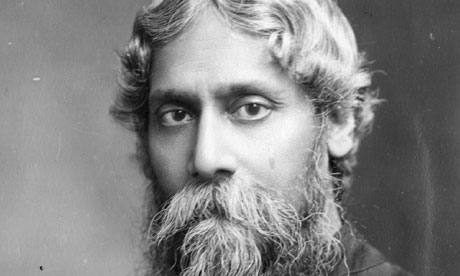Tagore was probably a renaissance in the Bengali literature history, and he tailored such beauteous pieces of novels and novella, that one would be absolutely amazed to imagine the great status of progressive thoughts that dwelt in his mind. What influenced him was his aristocrat family who believed in accepting change and his habit of voracious reading. Tagore might not have a formal education, but he must have paced all over the world with his reading habits. His characters have a tang of simplicity and complexity blend together in a ratio that is unthinkable. His clear observation of human behavior is something that gets clearly reflected in all his tales. The emotions of a simple Bengali clerk, an orphaned girl, a housewife, the editor of a magazine are all different and their mentalities can be distinguished in all his great masterpieces. His unique style of depicting each character’s persona and thought process is an interesting way of bringing the characters alive. Every character breathes in his fabricated tales, and every character dies a natural death when the narration ends with a hapless twist.
Tagore seems to live in a different era from his contemporaries. His fellow people were still struggling to accept women as a part of their lives, while Tagore knew already that women were eccentric in any society and that they were the creatures that held the world together and made it a better place to live in. Women in his tales have been fiercely independent, strong, determined, else have been kind and comfort giving, and miraculously, both the variations have come out as a positive vibe of strength, as if being a lady meant to have both, and as if devoid of one dimension, the woman stands incomplete. Tagore’s woman is the 21st century lady, she needs no one for her existence, yet she gladly accepts a man to be hers, because she loves him fiercely.
Binodini in Chokher Bali is a lady who has been widowed. Extremely educated and well versed in the ways of the world, she is aware of her sexuality and knows that with her widowhood she could no longer satisfy herself. She fell into a love triangle, rather came in between a married couple, Ashalata; a simpleton girl with no existence at all, and Mahendra; a well-educated man who got attracted to Binodini because both of them were similar somehow, and Binodini perfectly understood Mahendra, because there was an intellectual vacuum between Ashalata and Mahendra. Binodini like a serpent occupied that space with her intelligence and charm, and Mahendra, a man driven by lust and beauty fell into the vice like grip of the widow. Binodini’s personality is extremely strong. She is aware of her own sexuality and she is not ashamed of it. She knows that passionate blasphemies are short lived. In the end, she departs from their lives, with a last letter that was addressed to Ashalata- she requested Ashalata to broaden the horizon of Her daughter’s education and teach her about the global ways of life. That would liberate her. Binodini’s dynamism in character is strikingly unconventional.
Charulata in the Fouled Nest is another woman who is docile, more simple, and yet complex. She was married off to an elderly person, who took her passions lightly. Charu pursued her passions with the enthusiasm of her brother in law, Amal, and eventually fell for him. Amal’s marriage with another lass jilted Charulata and broke her marriage forever, and although Charulata’s husband started off newly, Charulata stayed behind.
Women of such persona dominated Tagore’s poems and novels. The greatness in his narration is that he gave birth to modern women, who were driven by nothing else other than their inspirations and passions. These fiercely independent women must be the inspiration for all of the young women who fear to pursue their dreams in dread of patriarchy. If Tagore’s women could be liberal and had no barriers, so can we be, so can we dream of an independent existence, dominated by no one other than destiny.











